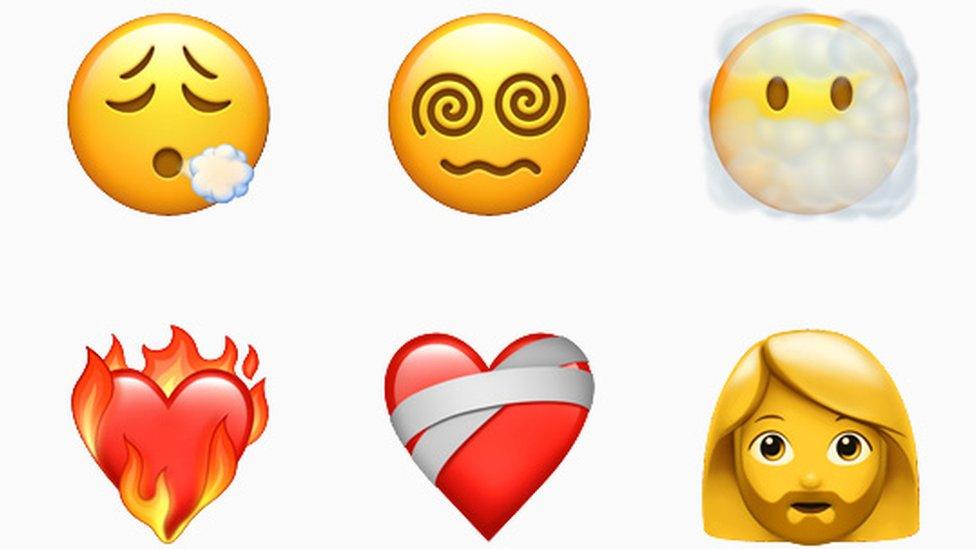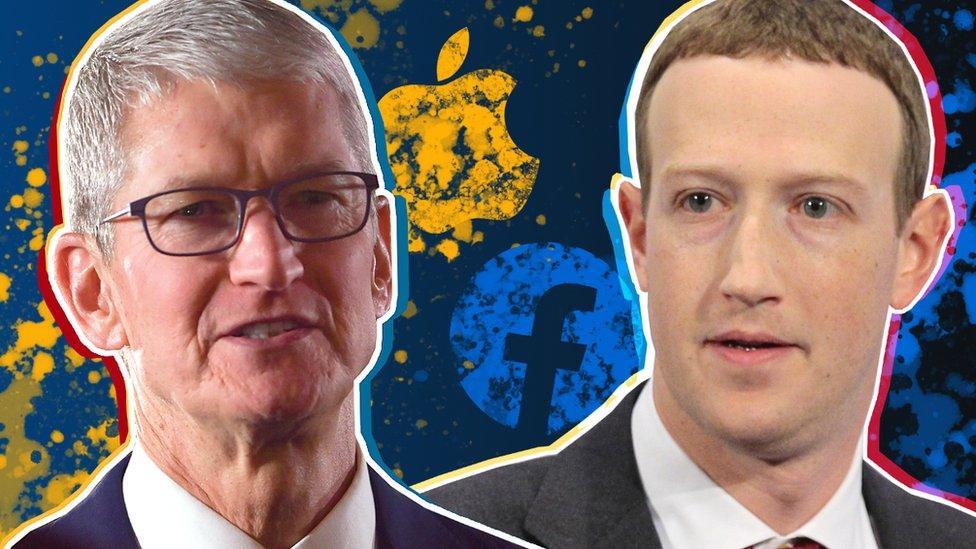Tech Tent: Apple’s ad-tracking bombshell
- Published

It sparked a bitter war of words between two of the most powerful tech giants and promised to force radical change in the online advertising industry.
Now Apple's new mobile operating system has arrived giving users more power over how they're tracked by advertisers. This week's Tech Tent looks at whether iOS 14.5 really has been the earthquake that the ad industry feared.
Apple had painted it as a great blow for privacy, Facebook had warned it could destroy small businesses dependent on targeted ads. So how did users react when the mobile operating system, with its App Tracking Transparency, was released on Monday?

Listen to the latest Tech Tent podcast on BBC Sounds

With developers big and small now having to ask permission from users to track them wherever they went online, the expectation was that few would agree. Laura Petrone, from data and analytics company GlobalData, told Tech Tent what she expected to happen:
"It's one thing having the tracking installed on your phone by default, but another thing actually being asked if you'd like to decline being tracked. And then in that case, most likely you refuse to opt in."
Now, many app developers were slow to trigger the request pop-ups - and so had to switch off tracking in the short term. But adtech firm Blis says it has evidence from the first 24 hours of iOS 14.5 showing that when users were asked, 30% agreed to allow tracking but 70% said no.
There were wide variations between countries with 50% of US users agreeing to be tracked, compared with only 20% in the UK.
But the marketing industry, which is full of sunny optimists, already seems prepared to move on from tracking and highly targeted advertising.
"I think we have to get smart about how are we communicating the value of our products and our offering," says Lynne Capozzi, chief marketing officer at digital platform Acquia.
She says rather than scoping up vast amounts of data from unsuspecting web surfers, brands need to have a more transparent relationship with consumers.
"The more you can talk directly to the consumer about their wants and needs, the better, because the more they're going to share their information with you."
And as for that pair of shoes that follows you around the internet because you once glanced at them in an online store, nobody is going to miss them: "Products that you don't want will no longer be following you around. And we're all looking forward to that going away," she says.
The reason Facebook made such a fuss about this change in the iPhone's operating system was that it appeared to pose a threat to its business model, which depends on collecting vast amounts of data with which to target ads.
Apple, it hinted, could afford to pose as a champion of privacy because its profits came from expensive devices - and from a healthy cut of the revenues of app developers who might now be forced to charge subscriptions if it was harder to sell ads.
But this week showed just how lucrative both business models are, with Facebook and Apple each unveiling stunning financial results. At a conference call with analysts after its results, Facebook described the impact of App Tracking Transparency on its business as "manageable" - not quite the apocalyptic picture it had painted a few months ago.
The online advertising industry may have to give up on knowing quite as much about us - but don't expect Facebook to go out of business quite yet.
Related topics
- Published27 April 2021

- Published26 April 2021
